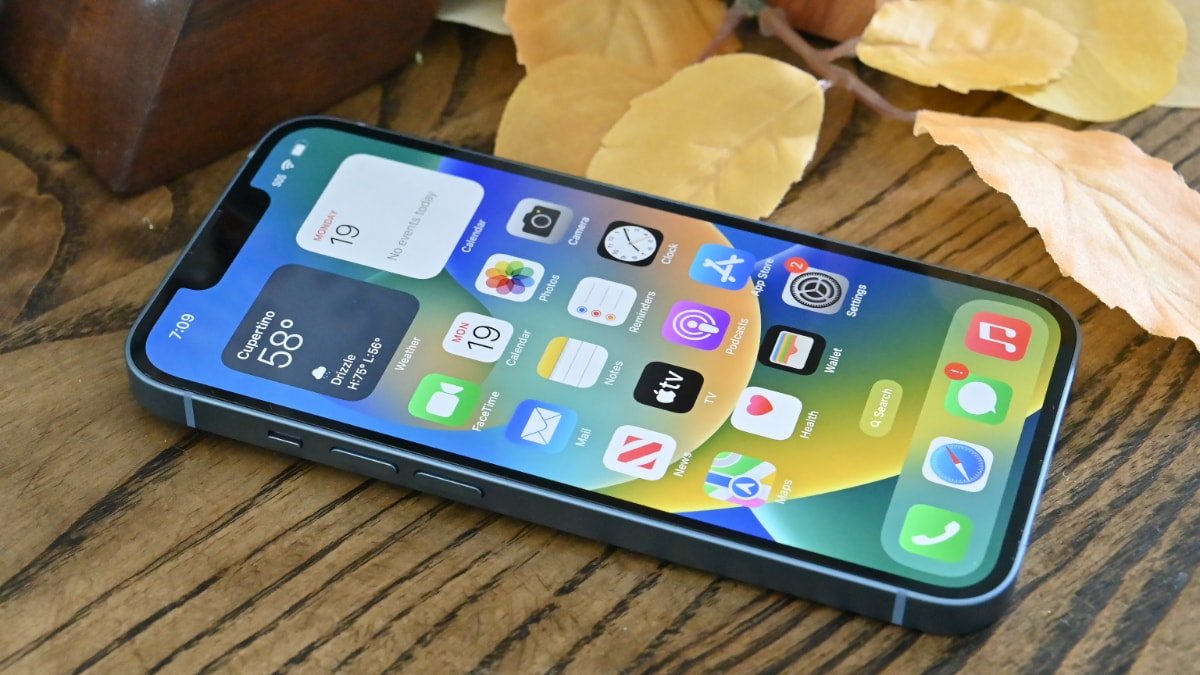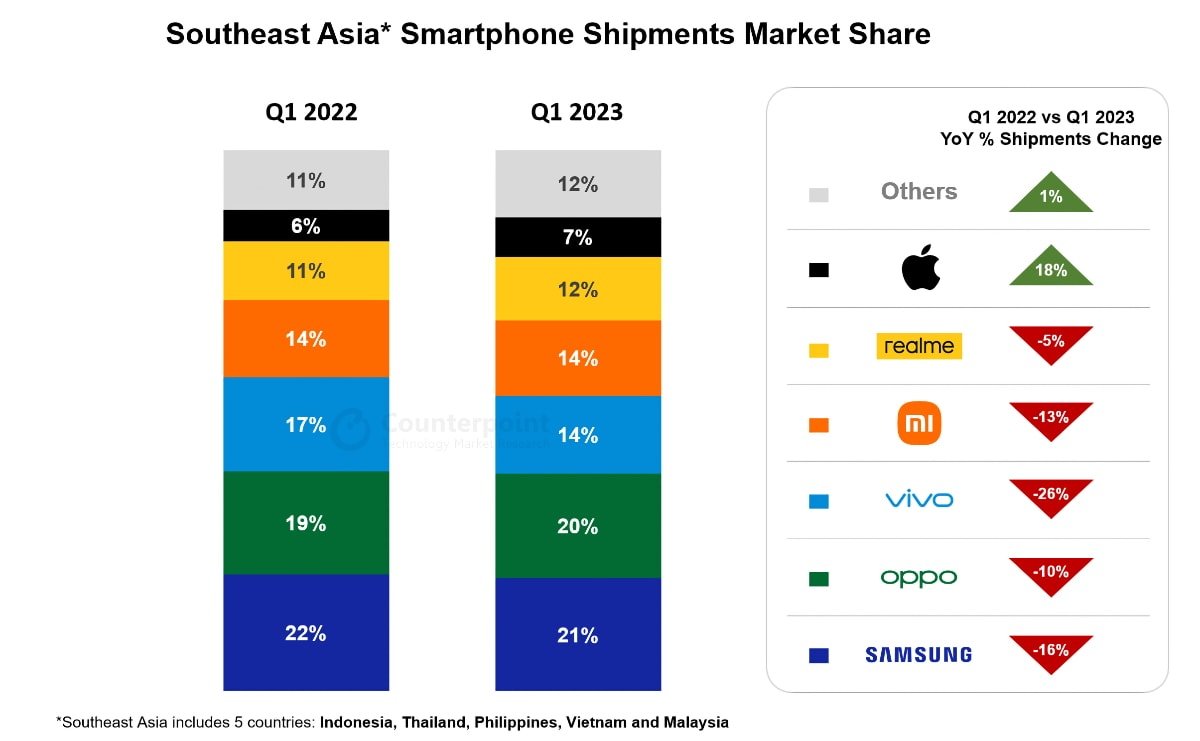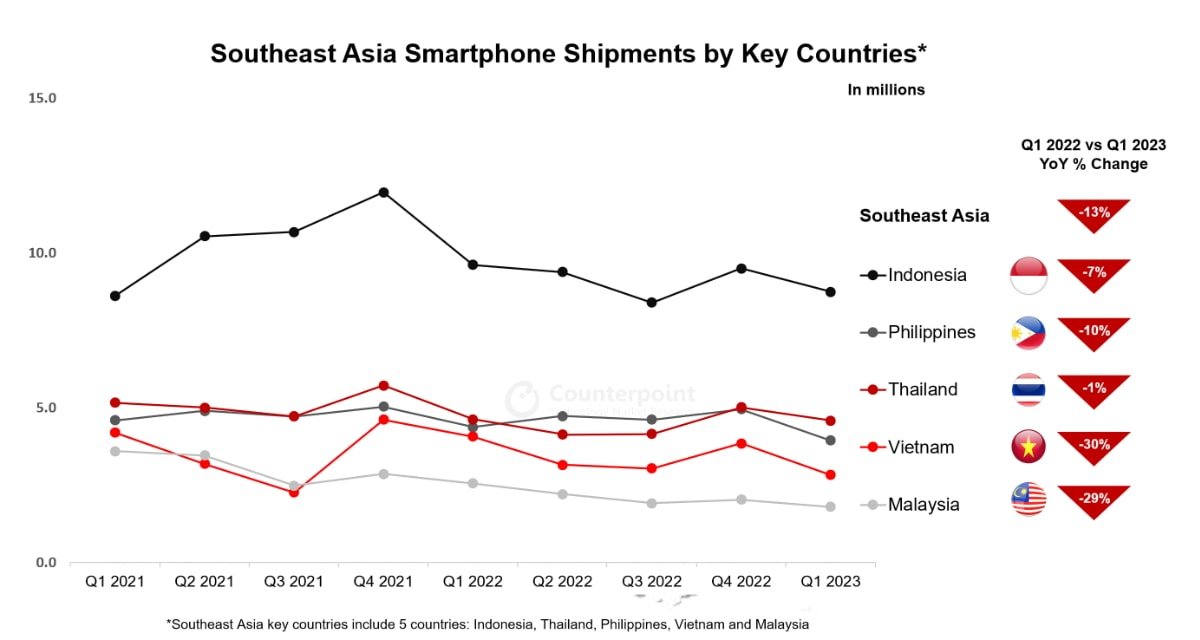Economic factors contributed to low smartphone shipments in Southeast Asia as consumers spent less money, but iPhone shipments saw growth.
Due to diminished demand and a seasonal decrease, smartphone shipments in Indonesia, Thailand, Philippines, Vietnam, and Malaysia registered a year-over-year decline of 13%, according to Counterpoint Research. Apple was the only one among the top six companies to increase shipments.
The major Southeast Asian countries are recovering from the geopolitical impacts of 2022, although they are still dealing with some inflation effects. For example, the Philippines experienced significant inflation at the beginning of this year.
But Vietnam is emerging as a flourishing market for iPhones, witnessing a favorable demand for the iPhone 13 and 14 series during the first quarter of 2023. Additionally, Indonesia has also experienced an increase in iPhone shipments.
Altogether, there was an impressive year-over-year growth of 18% in iPhone shipments during the first quarter of 2023. However, all of the other top vendors declined, with Vivo posting the most significant loss by dropping 26% in shipments.
Southeast Asia has a diverse range of behavior based on various consumer types. The segment of low-end smartphone buyers is recovering, but they have yet to fully reach their previous financial levels.
On the other hand, mid-to-high-end smartphone buyers are being cautious with their spending and opting to prolong the use of their existing phones. In contrast, high-to-premium smartphone buyers appear unaffected by the economic circumstances.
The Vietnamese government aims to implement 5G commercially in 2023. If carried out sooner rather than later, this move will enable an enhanced level of manufacturing and consumer utilization.
Meanwhile, the government and industry are actively commercializing 5G and determining the associated terms in Malaysia. Interestingly, consumers in Malaysia are already equipped with 5G smartphones.
"While 5G is becoming a norm, operators are coming out with creative packages and providing options for all types of smartphones," writes Senior Analyst Glen Cardoza. "The coming months are likely to see a bit more improvement in consumer sentiment while governments make sure that their countries remain largely unaffected by global macro issues."
 Andrew Orr
Andrew Orr









-m.jpg)






 Charles Martin
Charles Martin

 Malcolm Owen
Malcolm Owen
 William Gallagher
William Gallagher

 Christine McKee
Christine McKee
 Wesley Hilliard
Wesley Hilliard








2 Comments
iPhone sales have increased but not due to increased demand. In countries like Vietnam dealers inventory is not healthy and they are selling at a loss and relying on back-end incentives to cover. Apple also has to reduce price and give further back-end rebates to support the increased shipments. The quality of this kind of growth is not very healthy because it is reliant on subsidies to drive the volume rather than real organic growth in demand. It also causes price disruption as Apple is unable to maintain the recommended list price.